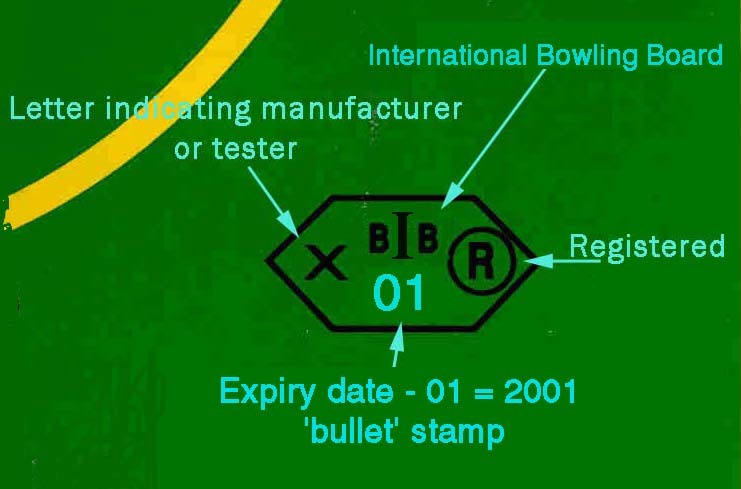Guide to Bowls
Below you will find a brief guide to the rules of lawn bowling, for a much more comprehensive guide to lawn bowling, including Crown green bowling, please have a look at https://www.bowls.org.uk/flat-green

The aim of the game is simple. Get your bowls as close as possible to a small white ball called the ‘jack’.
It might sound easy, but the fact that the bowls do not travel in a straight line seriously adds to the tactical challenge.
Bowls can be played indoors or outdoors, and the rules are the same.
The playing
All the play takes place on a standard bowling green, which is a flat square 34-40m long. This is divided into six playing areas called rinks. After a coin toss, the first bowler (the lead) places the mat and rolls the jack to the other end of the green as a target. The jack must travel at least 23m and, when it comes to rest, it is moved across to the centre of the rink.
The players then take turns to bowl.
When all the bowls have been played, a competitor or team gets one point for each of their bowls that is closer to the jack than the opponent’s closest bowl.
After all the bowls have been delivered, the direction of play is reversed. This is the end of an end!
Sounds easy yes? If you are a natural then maybe but most find it, at least initially, a little more challenging! Have a read of the first tries of BBC journalist Mark Ashenden
Bowls can be played in singles, pairs, triples and four-player teams. Each player has four bowls per end in singles and pairs competitions, three in triples, and two in fours. The team captain, or ‘skipper’, always plays last and is instrumental in directing the team’s shots and tactics.
Scoring
Scoring systems vary for different competitions. It is usually the first player to reach 21 points, or the highest scorer after 18 or 21 ends. Another system used is “set play”. For example, the first to reach seven points is awarded a set, with the match played best-of-five sets or three sets. Each set is won by the highest scorer after nine ends and, if a third set was required, a tie-break was decided over three extra ends. “Set play”is based on winning ends, not total number of points. Regular inter-club games are normally based on the number of points over 21 ends.
Choosing Bowls
The advice here is to help people out whether they buy from our shop or not but the advice is not necessarily the best guide for all people in all situations and we cannot be held responsible for any actions taken by you as a result of following advice on this page.
Whether selecting lawn bowls or indoor bowls, most people prefer “gripped” bowls these days and medium weight is the default for Lawn Bowls. Black is the most popular colour by far though coloured bowls are easier to identify during play.
What size of Lawn Bowls should I buy?
The size is the most difficult thing to guess if you don’t know as it is a personal thing relating to the size of the hands of the bowler. However, we can give you some rules of thumb viz:
Ladies tend to buy size 00 – 3.
Gents tend to buy size 3 – 6.
Most popular sizes are 1 2 3 & 4.
An average gent will probably find size 3 or 4 suitable. An average lady typically goes for size 1 or 2.
Size 00 is for the very smallest lady’s hands.
Drakes Pride Professional Bowls Sizes & Weights – Metric
| Size | 0 | 0 | 1 | 2 | 3 | 4 | 5 |
|---|---|---|---|---|---|---|---|
| Diameter (mm) | 116 | 118 | 121 | 122.5 | 124 | 125.5 | 127 |
| Medium Weight (grams) | 1190 | 1220 | 1300 | 1350 | 1400 | 1460 | 1520 |
| Heavy Weight (grams) | 1215 | 1280 | 1350 | 1400 | 1460 | 1520 | 1580 |
Drakes Pride Professional Bowls Sizes & Weights – Imperial
| Size | 0 | 0 | 1 | 2 | 3 | 4 | 5 |
|---|---|---|---|---|---|---|---|
| Diameter (mm) | 4 9/16 | 4 11/16 | 4 3/4 | 4 13/16 | 4 7/8 | 4 15/16 | 5 |
| Medium Weight (grams) | 2-09 | 2-11 | 2-13 1/4 | 2-15 3/4 | 3-1 1/2 | 3-3 3/4 | 3-5 3/4 |
| Heavy Weight (grams) | 2-10 1/2 | 2-13 3/4 | 2-15 3/4 | 3-1 1/2 | 3-3 1/2 | 3-5 1/4 | 3-7 1/4 |
Bowls date stamps
Bowls date stamps are only relevant to National competitions (and then only the latter stages). For domestic, county or club competitions the date stamp is not inspected. Bowls have a 10 year validity date stamp, if you are very serious about your bowls then you would have then re-stamped, at least, by the time the validity period runs out. To get bowls restamped they will be tested as a set to ensure the bias is still true i.e. all 4 bowls end up on the same spot when bowled in precisely the same way..

Donate to St.Chad's
Make a financial donation towards the club